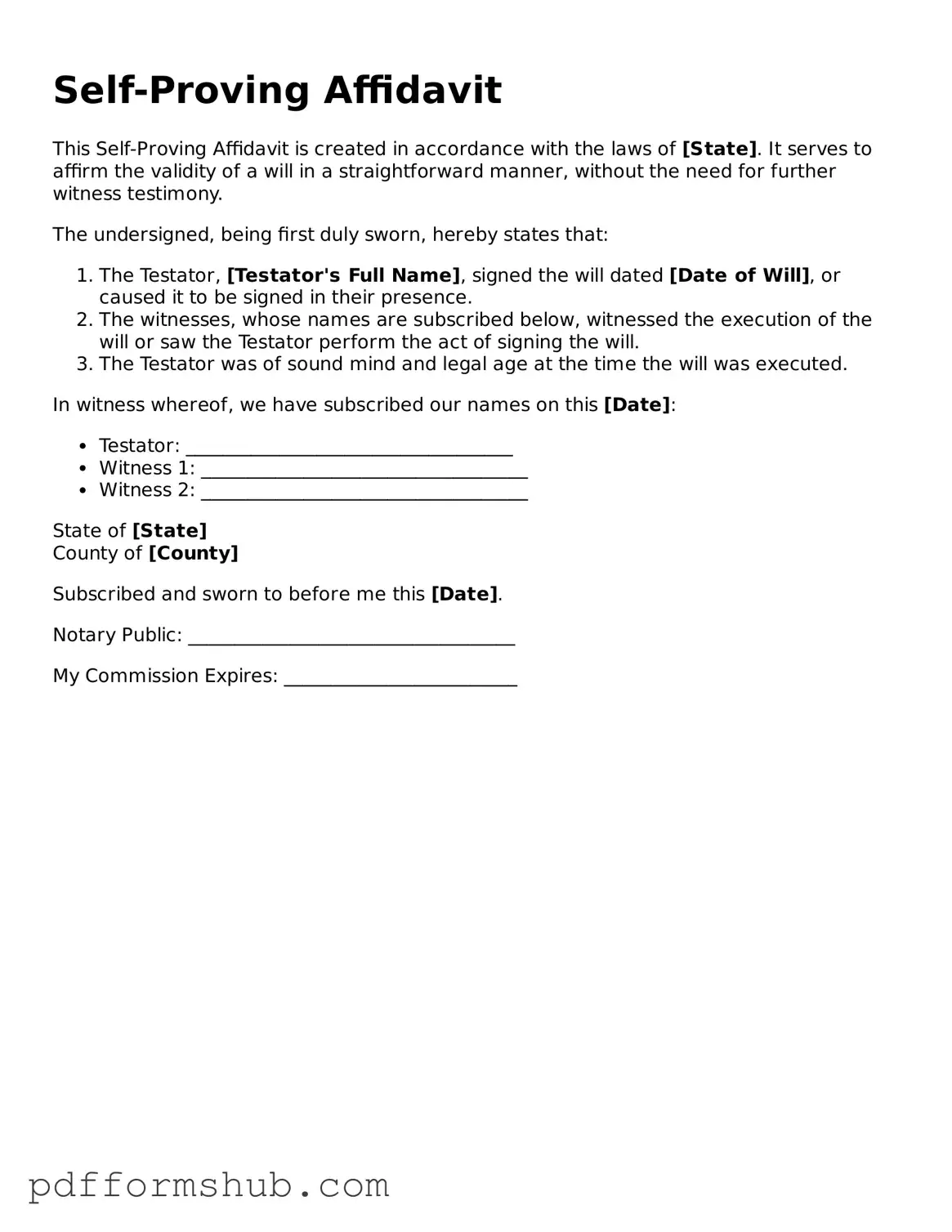Valid Self-Proving Affidavit Form
A Self-Proving Affidavit is a legal document that allows a will to be validated without the need for witnesses to testify in court. This form simplifies the probate process by confirming the authenticity of the will at the time of signing. If you’re ready to ensure your will is self-proving, click the button below to fill out the form.
Customize Form

Valid Self-Proving Affidavit Form
Customize Form

Customize Form
or
Free PDF Form
Short deadline? Complete this form now
Complete Self-Proving Affidavit online without printing hassles.